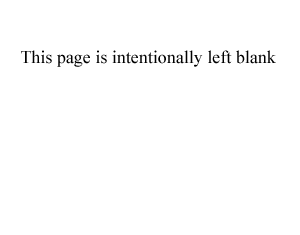I was too busy eating last week to notice the Zuckerberg Christmas picture, but catching up with the story this week, I find the media responses and comments quite telling of how society is adapting to the Zuckerverse, i.e. how utterly confused everyone is — and that’s just the experts.
Tag Archives: facebook
Facebook respond to tracking cookie accusations
I wrote in January about the faculty Facebook may possess for tracking your browsing history. I made brief mention of the fact that logging out of Facebook may not prevent further tracking. It’s this last point that caused a stir this week as Nik Cubrilovic’s post got picked up by the press.
His follow-up post describes Facebook’s response, but the ‘tracking’ cookie to which I was referring has not been removed. According to Nik’s post, Facebook admit this will remain after logout to track the browser, but for ‘safety and spam purposes’.
According to this WSJ article, ‘not all of the data is logged’. That’s good.
The bottom line for me is that Facebook are so powerful that they need to be as answerable to their populous as a government. That means a certain level of transparency and being clear about their intentions. If they go back on their word, who holds them accountable? Are our laws even adequate? Should Facebook be audited, or should we just trust them?
I don’t expect I’d be too happy about having my servers audited, but I’m not Facebook. When nearly half a billion people log into your site each day to give you their data, you have a serious amount of responsibility on your shoulders.
Facebook wants your medical history .. why?
I was just starting to think I should shut up about Facebook for a while after my last two posts, but then I enabled the new Timeline profile and saw this:

Wow.
This adds a “Health and Wellness” Life Event to your Timeline.
(Timeline is new Zuckspeak for Wall, and Wellness is American for, erm.. Health)
Why would you tell a company that sells data that you were ill? … seriously, why?
Why I’m not quitting Facebook
Immediately following my latest rantings about Facebook, this seems like an appropriate time to answer a question I get asked a lot:
“If you don’t like it, why don’t you quit?”
This morning I read Chris Applegate’s post about quitting Facebook. As much as I sympathise, I’m not quitting. Here’s why.
Tim W opened his fridge door
or – A feature agnostic look at F8 2011; steps in the same direction
Another F8, another set of powerful new features, and yet I’m not surprised by any of them. I’m not saying I predicted them (I didn’t) but the announcements are typical of what I see as a clear pattern in Facebook’s evolution.
Without discussing specific features, the pattern of Facebook’s ‘progress’ typically adheres to these traits:
- More connections;
- Less friction;
- Deeper integration.
That’s Facebook marketing language. I interpret these traits follows:
- More data;
- Less opportunity for users to think;
- Placing Facebook at the centre of the Web.
Yes, I’m a cynic. Did you not know?
Circles vs Friend Lists
Why I don’t think Circles is Google+’s killer social feature
I firmly believe that if any company can dethrone Facebook, that company is Google. But from what I’ve seen of Google+ so far, I can’t quite imagine a MySpace-style emigration happening just yet.
I’ve recently been asking Google+ fans to give me a good reason to use it. By far the most popular answer to my question is that it provides better privacy and filtering options.
Circles is great. It’s about as simple to use as it can be, but I don’t believe it’s anything like a game-changer.
Whitewalling and digital permanence
I recently came across this research into risk reduction strategies for using Facebook – particularly by teenagers. The main article talks about “Super-Logoff“, but it was a comment below the article that educated me about “Whitewalling“.
 I love this. The simple idea that yesterday’s wall posts are yesterday’s news. Not only may they be irrelevant, but once forgotten who knows how they may come back to bite you? They’re still there, discoverable by other users and of course by the API.
I love this. The simple idea that yesterday’s wall posts are yesterday’s news. Not only may they be irrelevant, but once forgotten who knows how they may come back to bite you? They’re still there, discoverable by other users and of course by the API.
These insights challenge my assumption that the next generation of adults won’t care about privacy. Teenagers may not have quite the same concerns as I do about these issues, but it’s fascinating to see how a website (designed by adults) leaves them to solve their own problems their own way.
Is Facebook tracking your web browsing history?
I recently saw this paper: “Facebook Tracks and Traces Everyone: Like This!”
(download the PDF)
Short version
Every time you merely visit a site that displays a Like button, data is sent to Facebook which includes the address of the site you are visiting. Assuming you’ve also logged into Facebook, they have all the information they would need to associate these external page views with your Facebook identity.
Predictions for 2013
This New Year’s eve I thought I might blog some predictions for the coming year, (social purchasing, app stores, yada yada), but I decided that wasn’t stupid enough, so at risk of sounding like a deranged conspiracy theorist, here’s my outlook for 2013 instead. Sweet dreams, and happy 2011 everyone! Continue reading…
Take a cognitive load off
Two related events happened yesterday, which caused me to write this post.
1. Facebook announced their new messaging system. Project Titan, ‘Gmail killer’, etc..
2. A series of fake Twitter accounts sprung up, offering invites to Facebook’s new system.
